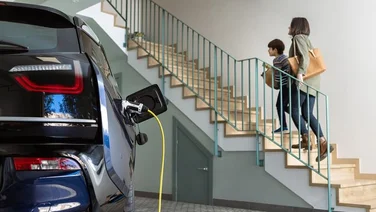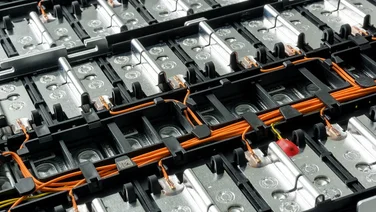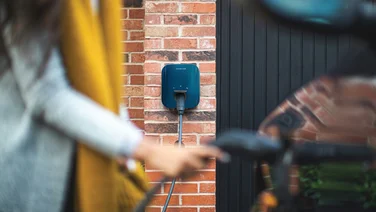We receive a small fee from trusted installers when you request a quote through our site. This helps us keep our content independent, well-researched and up to date – Learn more
- Electric car charger costs at UK supermarkets
- How much does it cost to charge an electric car at Tesco?
- How much do Aldi electric car charging points cost?
- How much do Asda electric car charging points cost?
- How much do Lidl electric car charging points cost?
- How much do Morrisons electric car charging points cost?
- How much do Sainsbury’s electric car charging points cost?
- How much do Waitrose electric car charging points cost?
- Is it easy to find electric car charging points at supermarkets?
- Is it better to charge at home or at a supermarket?
- Summary
- FAQs
- It costs 44-69p per kWh to charge an electric car at Tesco
- Sainsbury’s electric vehicle chargers are all free
- The fastest chargers cost 79-85p per kilowatt-hour (kWh)
Charging your electric car at home is the cheapest option – especially since an electric car charger installation costs less that you’d think.
But charging at the supermarkets is a great way to combine your food and fuel shops – and many offer better prices than other public charging points.
We’ve researched all the major supermarket chains that offer electric car chargers, and laid out their prices, charging speeds, and charger providers below to make it as easy as possible for you.
If you’d rather get a home electric charger, we can help you compare prices. Just provide a few quick details, and our expert installers will be in touch with free quotes.
Electric car charger costs at UK supermarkets
(all prices are p/kWh)
Charging speed | Tesco | Aldi | Asda | Lidl | Morrisons | Sainsbury’s | Waitrose |
|---|---|---|---|---|---|---|---|
3.7 kW | Free | ||||||
7 kW | 44 | 25/30-50 | 40 | Free | |||
11 kW | 45 |
||||||
22 kW | 49 | 55/59 | 59/75/79 | 40 | 75/79 | Free | 55 |
50 kW | 62 | 75/79 | 65 | 75/79 | 45 |
||
75 kW | 69 | 79 | 79 | 79 |
|||
100+ kW | 79/85 | 79 | 85 |

How much does it cost to charge an electric car at Tesco?
It costs between 44p and 69p per kWh to charge an electric car at a Tesco charging station.
Charger speed | 3.7 kW | 7 kW | 11 kW | 22 kW | 50 kW | 75 kW | 100+ kW | Company |
|---|---|---|---|---|---|---|---|---|
Cost (p/kWh) | 44 | 49 | 62 | 69 | PodPoint |
Tesco’s 7 kW chargers are some of the most expensive you’ll find, but its faster models – which you’re more likely to use, if you’re on the move – make up for this.
Its pricing for 22 kW and 50 kW chargers is reasonable, and its 75 kW charging points are the cheapest around.
You can charge the average electric car up to 50% in around 30 minutes with a 75 kW charger – and at Tesco, that’ll cost you just £24.
Tesco has an impressive 2,500 PodPoint charging points at 600 stores all over the country, so it’s relatively easy to find one quickly.
To use one, just use PodPoint’s website or download the app. If your internet connection is spotty, you can also give someone a call using the details on the charging point.
How much do Aldi electric car charging points cost?
Aldi electric car charging points cost between 25p and 85p per kWh.
Charger speed | 3.7 kW | 7 kW | 11 kW | 22 kW | 50 kW | 75 kW | 100+ kW | Company |
|---|---|---|---|---|---|---|---|---|
Cost (p/kWh) | 25/30-50 | 55/59 | 79 | 79/85 | Shell, BP Pulse, & GeniePoint |
Aldi has a broad range of pricing because it’s partnered with three different providers across the 148 stores it’s equipped with charging points.
This makes it crucial to check your local stores’ chargers and prices online before deciding where to take your car, as they vary enormously.
Shell’s 7 kW chargers at Aldi are the cheapest around – apart from Sainsbury’s – but are only good for a boost, as they take five hours to get the average electric car to 50%.
The rest of its charging points are on the expensive side, except the ultra-rapid 100 kW chargers, which come with the same prices you’ll find at other supermarkets.
You can use any Aldi charging point by downloading the app associated with that store’s chargers.
How much do Asda electric car charging points cost?
Asda electric car charging points cost between 59p and 79p per kWh.
Charger speed | 3.7 kW | 7 kW | 11 kW | 22 kW | 50 kW | 75 kW | 100+ kW | Company |
|---|---|---|---|---|---|---|---|---|
Cost (p/kWh) | 59/75/79 | 75/79 | 79 | 79 | BP Pulse & GeniePoint |
Asda’s prices are among the highest around for all its chargers.
This is because the British chain has partnered with BP Pulse and GeniePoint, which are both expensive operators.
GeniePoint does offer off-peak pricing from 8pm to 7:59am every day, but the 4p reduction from 79p to 75p per kWh isn’t worth writing home about – especially as it still costs more than any other supermarket provider’s 22 kW or 50 kW charging points.

How much do Lidl electric car charging points cost?
Lidl electric car charging points cost between 40p and 65p per kWh.
Charger speed | 3.7 kW | 7 kW | 11 kW | 22 kW | 50 kW | 75 kW | 100+ kW | Company |
|---|---|---|---|---|---|---|---|---|
Cost (p/kWh) | 40 | 40 | 65 | PodPoint |
Like Tesco, Lidl has an agreement with PodPoint, which has installed electric vehicle charging points at more than 300 of its stores.
As you might expect, prices are low at Lidl, especially for its 7 kW and 22 kW chargers.
If you find a Lidl with a 22 kW charging point, take advantage – you won’t find a cheaper price at a supermarket. You can charge the average car to 50% in 1.5 hours, for just £14.
Its 65p per kWh fee for 50 kW chargers is decent too, and will allow the average driver to charge to 50% in about 40 minutes.
How much do Morrisons electric car charging points cost?
Morrisons electric car charging points cost between 75p and 79p per kWh.
Charger speed | 3.7 kW | 7 kW | 11 kW | 22 kW | 50 kW | 75 kW | 100+ kW | Company |
|---|---|---|---|---|---|---|---|---|
Cost (p/kWh) | 75/79 | 75/79 | GeniePoint |
The supermarket has made only tentative steps into electric vehicle charging so far, so it has a limited offering of chargers and prices.
You’ll only find around 300 Morrisons charging points around the UK – eight times less than Tesco.
And because the chargers are provided by GeniePoint, the prices are higher than you’ll find at other supermarkets.
How much do Sainsbury’s electric car charging points cost?
Sainsbury’s electric car charging points cost nothing.
Charger speed | 3.7 kW | 7 kW | 11 kW | 22 kW | 50 kW | 75 kW | 100+ kW | Company |
|---|---|---|---|---|---|---|---|---|
Cost (p/kWh) | Free | Free | Free | PodPoint |
That’s right: all of Sainsbury’s chargers are free.
Other supermarkets have offered free charging stations in the past, but they’ve all stopped as electric cars have become increasingly popular – apart from Sainsbury’s.
Most of the supermarket’s PodPoint-supplied chargers are 7 kW models, meaning two hours of charging will typically only get your car to 20% – but it’s still a great way to cut costs.
And if you’re lucky enough to live near one of Sainsbury’s rare 22 kW chargers, you should absolutely make the most of it.
How much do Waitrose electric car charging points cost?
Waitrose electric car charging points cost between 45p and 85p per kWh.
Charger speed | 3.7 kW | 7 kW | 11 kW | 22 kW | 50 kW | 75 kW | 100+ kW | Company |
|---|---|---|---|---|---|---|---|---|
Cost (p/kWh) | 45 | 55 | 45 | 79 | 85 | Shell |
The upmarket brand is set to have chargers at 100 of its stores by 2025.
All of these will be supplied by Shell, though at different price points depending on the location.
Currently, you won’t find a better price for 11 kW or 50 kW charging points at any supermarket than Waitrose’s 45p per kWh.
The 50 kW model will get your car to 50% in 40 minutes, for just £16 – but make sure to check the price.
After all, some of Waitrose’s rapid charging points cost 79p per kWh instead of 50p.
Is it easy to find electric car charging points at supermarkets?
It’s relatively easy to find electric car charging points at supermarkets, as there are now thousands of chargers across the nation.
However, it’s still worth checking whether you can charge up at your local store before you go. Every brand we’ve featured has a locator function on its website that’ll tell you if it has charging points.
Supermarket chargers make up a significant proportion of the more than 40,000 charging points available to the public in the UK – but they’re not at every branch just yet.
Is it better to charge at home or at a supermarket?
It’s better to charge your car at home than a supermarket, as you’ll spend much less – unless you can charge at Sainsbury’s.
Charging for free will always be cheaper than using your home electricity – unless of course you generate electricity yourself, using solar panels. Check out: Can You Use Solar Panels To Charge An Electric Car?
If neither of these options are available to you though, charging your car at a supermarket will usually be 77% more expensive than charging at home.
So over the course of a year, you’ll save £555 on average by using a home charger instead of public charging points.
Summary
We’ve provided you with all the information you need to know about how much it costs to charge an electric car at Tesco and all the other supermarkets that provide charging points.
And if you’d rather get a home charger instead, as it’s the cheaper option – with the exception of Sainsbury’s – we can help you with that too.
Just provide a few quick details, our expert installers will get in touch with free quotes, and you’ll be able to compare prices in no time.
FAQs
Do supermarkets offer free electric car charging?
Sainsbury’s is the only supermarket in the UK to offer free electric car charging.
Other supermarkets have previously provided free charging, but introduced pricing structures as the popularity of electric vehicles began to rise exponentially.
Most of Sainsbury’s chargers are 7 kW, but you can find the odd 22 kW charging station.
How much does it cost to charge an electric car at a public charging station in the UK?
It costs anywhere from nothing to 85p per kWh to charge an electric car at a public charging station in the UK.
The average cost of charging at a supermarket charging station is 63p per kWh, which is about double the cost of charging at home.
However, Tesco, Aldi, Lidl, Waitrose, Sainsbury’s, and Asda all offer cheaper options than this.
How much does it cost to charge an electric car at Sainsburys?
It costs nothing to charge an electric car at Sainsbury’s.
All of Sainsbury’s charging points, which come with speeds of 3.7 kW, 7 kW, and 22 kW, are completely free – so take advantage while you can.
Is Aldi charging free?
Aldi charging isn’t free. It costs between 25p and 85p per kWh to charge your electric vehicle at an Aldi store, depending on the speed of the charging point.
An Aldi spokesperson confirmed this fact to The Eco Experts, saying: “Charging points are currently available at around 148 Aldi stores in the UK, however, there is a fee for use.”








